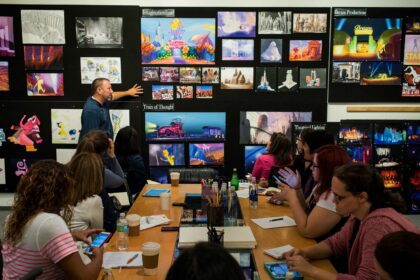In a world obsessed with strategy decks and five-year plans, a new generation of women entrepreneurs is rewriting the rules. They’re proving that vision, adaptability, and intuition can outperform even the most polished pitch decks. From wellness brands to tech startups, these women didn’t follow a roadmap they made one as they went.
Their journeys challenge a core belief of the business world: that success is born only from strategy. Instead, their stories reveal how clarity of purpose, emotional intelligence, and instinct can turn uncertainty into an advantage.

The Myth of the Perfect Plan
For decades, business schools and investors have preached the gospel of structured planning market analysis, KPIs, quarterly targets. But research from Harvard Business Review shows that 42% of startups fail not because of poor planning, but because they build products nobody wants.
That’s where intuition comes in. It’s not the absence of thought, it’s the integration of lived experience, creativity, and empathy.
Take Sara Blakely, the founder of Spanx. She famously started her billion-dollar shapewear company with just $5,000 in savings and no business plan. “If I had written a plan,” she once said, “I would have talked myself out of it.” Her success came from identifying a real problem she personally faced and believing other women had the same need.
From Chaos to Clarity: How Intuition Drives Innovation
Intuitive founders often spot market shifts before data does. They listen not just to analytics but to people their customers, their employees, their instincts.
Consider Whitney Wolfe Herd, founder of Bumble. After leaving Tinder under public controversy, she didn’t have a clear plan for her next move. What she did have was an insight: that women wanted more control over how they connect. That intuition became the cornerstone of Bumble, now valued at over $7 billion.
A 2023 McKinsey study found that companies led by emotionally intelligent CEOs are 25% more likely to outperform competitors. These leaders make faster decisions, inspire loyalty, and adapt to change traits deeply tied to intuition.
The Freedom of Not Knowing
There’s a quiet power in saying, “I don’t know.” Women like Huda Kattan, founder of Huda Beauty, started with curiosity rather than certainty. As a beauty blogger experimenting with products in her Dubai apartment, she didn’t plan a cosmetics empire. But when her audience began requesting her creations, she followed demand rather than dictate it.
This approach mirrors the concept of “effectuation,” a theory by Dr. Saras Sarasvathy of the University of Virginia. Her research found that successful entrepreneurs often start not with a set goal, but with available means who they are, what they know, and whom they know and build forward from there.
In other words, the “no plan” approach isn’t recklessness, it’s responsiveness.
Learning to Trust the Gut
For many women founders, intuition is not just a skill but a survival mechanism. Studies show women tend to develop higher empathy and relational awareness, key components of intuitive decision-making.
Take Jas Bagniewski, co-founder of Eve Sleep, who once said, “Sometimes the best move is to move, even if you don’t have every answer.” That sentiment is echoed by Myleik Teele, founder of CurlBox, who began her subscription beauty business without a roadmap only a clear understanding of her community’s unmet needs.
In environments that often undervalue women’s voices, intuition becomes a counterbalance to institutional bias. When capital, mentorship, and validation are scarce, gut instinct often fills the gap.
Why the “No Plan” Approach Works in the Digital Age
Today’s markets evolve faster than any static plan can keep up with. Social media trends shift weekly. Algorithms change overnight. Consumer sentiment is volatile. The most resilient entrepreneurs are those who can pivot instantly.
In 2024, Shopify reported that more than 60% of its fastest-growing stores were founded without formal business plans their founders learned by doing. Platforms like TikTok and Instagram Reels have amplified this momentum, rewarding experimentation over precision.
These women aren’t “winging it.” They’re iterating in real time, guided by feedback loops and intuition. It’s entrepreneurship as a living conversation rather than a static document.
Turning Intuition Into Strategy
If intuition is the spark, strategy is the fuel. The most successful “no-plan” entrepreneurs eventually formalize what began as instinct.
- Document what works. Patterns emerge through experimentation. Capture them.
- Build a small team early. Intuition scales best through trusted partners.
- Use data to validate instincts. Let analytics confirm your gut, not replace it.
- Stay close to your customer. Direct connection ensures intuition remains informed.
- Keep vision flexible. Plans should evolve as quickly as your market does.
As entrepreneur and investor Katrina Lake, founder of Stitch Fix, puts it: “The best plans are living, breathing things. You write them with a pencil, not a pen.”

The Next Generation of Intuitive Builders
The rise of women like Alison Cayne (Haven’s Kitchen) and Tai Beauchamp (Brown Girl Jane) signals a new ethos in business: human-first growth. They lead with empathy, purpose, and agilitycqualities often dismissed as “soft” but proving to be powerful differentiators.
As the entrepreneurial landscape becomes more inclusive and decentralized, women who trust their instincts are not the exceptioncthey’re the blueprint.
Conclusion: Embrace the Unwritten
The women who built millions without a plan remind us that the path to success doesn’t have to be linear or even clear. Whether you’re building your first brand or scaling a business, the secret may lie not in what you’ve mapped out, but in what you’re willing to feel, risk, and trust.
The world’s most extraordinary companies often start not with certainty, but with courage.






